Caracas, Feb 28 (AFP) As dusk creeps into the streets, most of Caracas becomes a ghost town. But something is moving tonight in the shadow of FC Caracas's football stadium.
Fans float in small groups along the sidewalks. The green of the floodlit pitch gleams through gaps in the grey concrete edifice.
FC Caracas need to beat their Peruvian opponents Melgar by three goals in a second-leg game to qualify for the group stages of the Copa Libertadores.
But venturing out on match night in Caracas is about more than sporting odds and rivalries. It means braving crime and shortages.
"The situation the country is in complicates everything. Transport is difficult at night," says Daniel Mendoza, a thin 25-year-old with curly brown hair under a beanie hat.
"Football helps you endure the situation the country is in, for a while."
- Make some noise -
===================
Red shirts appear in the hardcore fans' stand behind the FC Caracas home goal in the Olympic Stadium. The drums and horns start up.
"The Red Demons, ever loyal, ever present," reads a slogan painted on the stand, which is less than half full.
An official announces there are 3,500 fans at the game: about a tenth of the stadium's capacity.
"There used to be more excitement, and more people," says Mendoza.
"With the situation the country is in, people's spirits have dropped. You don't feel the atmosphere as much." For Venezuela's most successful football team, there is more than just glory at stake in this game.
Winnings from a big club tournament would go down well in a country suffering hyperinflation.
FC Caracas used to wear kits by Adidas but had to switch to a local brand two seasons ago. Last year Venezuelan footballers complained that Adidas balls have been replaced by inferior quality ones.
Mendoza's ticket for Tuesday's match cost the equivalent of $2.70 -- more than half the Venezuelan minimum monthly wage. As a telecoms engineer, his own salary is around $50.
"In recent years I've started hearing fans yelling against the government" at matches, he says. "I've no doubt there are pro-government people here as well. But there aren't enough of them to make a big noise."
- Match-night security -
================
In the streets leading to the stadium, a different kind of tension reigns. Caracas residents warn constantly of violent crime: get robbed and there will be no neighborhood police to help you. Get shot or stabbed and there are few medical supplies to put you right.
But in recent days the usual security fears have been sharpened by political tension as opposition leader Juan Guaido has challenged President Nicolas Maduro for leadership of the country.
Young soldiers in green fatigues stand at ad-hoc checkpoints by the roadside, their rifles pointed at the ground. That is a new sight in recent weeks, local people say.
- Room to breathe -
===================
Despite the risks, a few loyal FC Caracas fans still venture out at night for the game. Among them sit Alejandro, a 46-year-old with a big belly, and his daughter Ainhoa, 16, who has long, brown hair and bright eyes.
"It is a time for us to share football as father and daughter," says Alejandro. "It is like oxygen. It is a release valve for Venezuelans." He asked to be identified only by his first name for professional and political reasons.
Caracas press high and hard, picking up several yellow cards and scoring two goals. But in the 89th minute Melgar score to win on aggregate. A red card for Caracas follows, capping a disappointing night.
"The referee's a son of a bitch!" the Caracas fans chant, rhythmically, slinking out into the dark streets.
Lined up in front of a team bus, policewomen in grey fatigues and red lipstick lean on their riot shields or thumb at their mobile phones.
- No free ride -
==========
Ainhoa's father asked her not to tell her friends she was going to the match. He was worried they would ask for a ride, complicating his already risky drive home.
"We run the risk because we like coming to the match. But you are always conscious of the insecurity," he says.
"If your car breaks down and you get stuck by the roadside, you don't know what might happen."
Ainhoa was born in 2002 -- the same year a military coup briefly removed from power president Hugo Chavez, Maduro's mentor.
"I have always liked football," Ainhoa says. "What I like is not so much the goals as the battle, how the match unfolds." Unlike a football match, however, for Ainhoa daily life can be repetitive and predictable.
"It is something you live through each day -- the economic problems, the insecurity," Ainhoa said.
"Ever since I was born it has been the same system. I have seen it all." AFP KHS
(The above story is verified and authored by Press Trust of India (PTI) staff. PTI, India’s premier news agency, employs more than 400 journalists and 500 stringers to cover almost every district and small town in India.. The views appearing in the above post do not reflect the opinions of LatestLY)


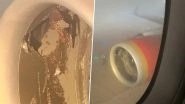
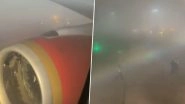


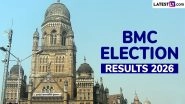
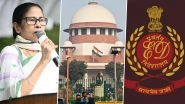
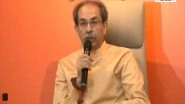
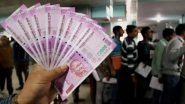
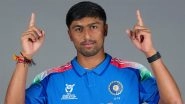
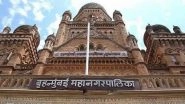

 Quickly
Quickly


